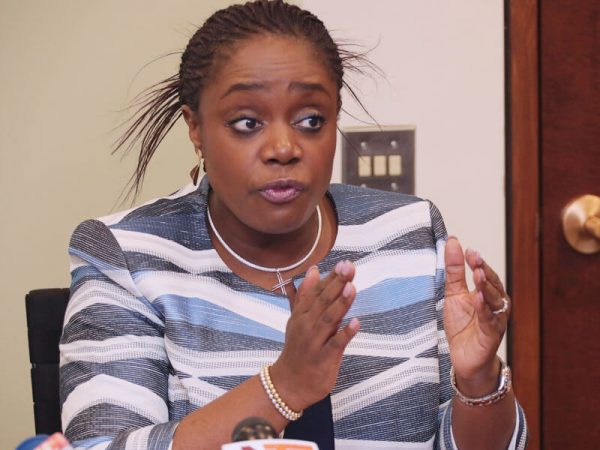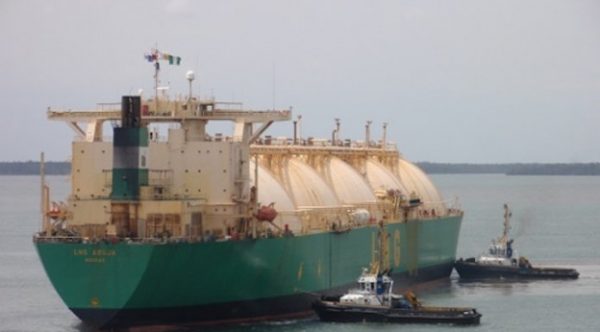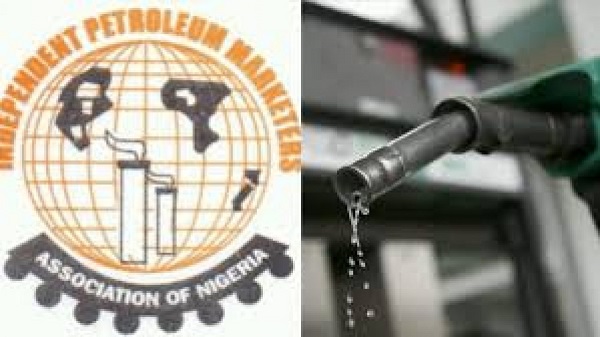NNPC Has Questions to Answer over Remittances to FAAC, Says NEC

- Backs FAAC’s rejection of May transfer
- Corporation blames governors for stalemate
- DPR indicates gas flare in Nigeria now down to 9%
The National Economic Council (NEC) Thursday in Abuja threw its weight behind the Federation Account Allocation Committee’s (FAAC) decision to reject the remittance by the Nigeria National Petroleum Corporation (NNPC) into the Federation Account in May.
The Wednesday meeting of the committee had ended in a stalemate as the NNPC failed to show up after failing to respond to the request of the committee to be more forthcoming with its operational accounts and remittances.
The corporation, in a statement Thursday, had also defended itself over alleged shadowy accounting, contending that the obstinacy of the nation’s 36 state governors was responsible for the prevailing stalemate.
But briefing journalists in the State House Thursday at the end of the monthly NEC meeting, the Minister of Finance, Mrs. Kemi Adeosun, said NNPC’s remittance fell below expectation and was consequently rejected by FAAC.
Adeosun who said she had sought the understanding of governors over FAAC’s inability to share the monthly collectible revenues among the three tiers of government as a result of under-remittance by the corporation, added that she had also briefed both the president and vice-president on the development.
According to her, based on the current price of crude oil, the expected amount into the federation account can easily be calculated and known, pointing out, however, that what NNPC presented to FAAC fell short of the expected figure, and hence, the need to hold the corporation accountable.
The minister explained that further probe of the matter was still ongoing and expressed hopes that the investigation would yield expected result in no time so that FAAC meeting could be convened within a short while.
Adeosun said: “Based on oil price, oil quantity you can pretty much calculate what you are expecting to see in the federation account and if the figure is less, then the right question that any stakeholder must ask is, why? So, we have been going back and forth with NNPC to try and understand these figures before we can accept them.
“Remember that the FAAC figures have to be formally accepted by the Federation Account Allocation Committee and we were simply not comfortable with the quantum of some of the deductions made and, therefore, we could not approve those figures. So, even as we speak, there is an interface going on between the Commissioners’ Forum, Ministry of Finance, Office of the Accountant General of the Federation, CBN and NNPC but we hope to be able to convene FAAC within next few days.”
Adeosun, who said further discussions with the NNPC on the matter would continue until the expected figures meant to be remitted are arrived at, argued that the current relatively high crude oil prices in the international market presents an opportunity to save money in the Excess Crude Account (ECA).
According to her, failure to get expected remittances from the NNPC, would undermine such plans to exploit the opportunity of the current high oil prices to save a reasonable amount of money in ECA, adding that $80.6 million accrued into ECA in May.
“I gave an account that I give every month on the balances in our Federation Account – Excess Crude Account and the Stabilisation Account. Those are my routine updates.
“Items to note on the excess crude account is that in May we had an additional credit of $80.6 million that accrued into the excess crude account.
“Also, in my capacity as Chairman of FAAC, l briefed governors on the deadlock that we have got currently in the federation account and explained what happened. And there was quite an extensive debate on what to do.
“For the purpose of this briefing, we operate NNPC as a business. We have invested public capital in that business and we have expectations of return and when that return falls lower than our expectations, then the owners of this business, which in this case is the federal government and states need to act.
“So, that was what caused the deadlock yesterday and we really felt the figures the NNPC was proposing for FAAC were unacceptable. We felt that some of the costs couldn’t be justified and so, we have decided that rather than approve the accounts, we will go back and do further work.
“So, further negotiations and interactions is going on with NNPC as we speak. However, we did brief both Mr. President and Mr. Vice President on the deadlock and asked for their support and their forbearance in this because the consequence of this is that, salaries might well be delayed in many states as a result of this.
“But we feel that in order to get the accurate figures that we need, we have asked for forbearance and the governors and the federal government are all in agreement that we need to get to the bottom of those figures.
“In particular, now that the oil price is now $76 per barrel in the spot market which means that bonny light is about $78, we want to be aggressively putting money away into the excess crude account. So, we are very conscious that this period, this window of relatively high oil price might not last and we will like to be able to save,” she said.
On the balances in other accounts of the federation in the month of June, Adeosun put the balance in ECA at $1,916,742,289.60, N18,892,864,216.65 in Stabilisation Account and N133,715,427,387.37 in Natural Resources Account.
In his own briefing, Delta State Governor, Dr. Ifeanyi Okowa, said the council received the annual reports and accounts of National Sovereign Investment Authority (NSIA) for the year ended 2016 and an update on 2017 activities.
According to him, the agency reported the profit of about N26.28 billion ($88 million) in 2016 with the total profit of about $1.25 billion on management for most part of the year, while it received an extra $250 million in the third quarter of 2017.
Okowa also said the agency reported that the returns on assets within the period were up to 6.6 per cent in dollar terms, adding that the NSIA has now shifted its focus to infrastructure and direct local investment in the country.
He said: “The 2017 activities of the NSIA also include the implementation of Presidential Fertilizer Initiative (PFI) in 2017. They commenced the construction of free health projects in Lagos, Kano and Umuahia, Abia State. They continued with the work, the funding of the work on the Second Niger Bridge in which they had been involved in the past.
“They also did invest and own 13 per cent of Bridge Academy Ltd, a network of schools that delivers high quality affordable primary education to lower income earners and it is hoped that they will do that too in other states of the federation.”
In his own briefing, the Minister of Education, Malam Adamu Adamu, said he presented to the council the strategy plan of the ministry to revamp education at all levels in the country.
Adamu said the council observed that the standard of basic education at the state level has fallen drastically and consequently constituted a committee comprising the governors of Kano, Osun, Delta, Anambra, Central Bank of Nigeria (CBN) Governor and the Minister of Education.
According to him, the committee was mandated to look into what needs to be urgently done in the education sector at the state level and report its findings back to the council.
NNPC Blames Governors for Stalemate
Meanwhile, the NNPC has alleged that governors of the 36 states of the federation were making requests on it to transfer an extra N40 billion for them to share in the FAAC despite its remittance of N147 billion to the FAAC in June for sharing by the three tiers of government, adding that the extra request by the governors was against the terms of the agreement it had with them on the matter.
According to a statement from the Group General Manager, Group Public Affairs of the corporation, Mr. Ndu Ughamadu, in Abuja, NNPC said it reached an agreement with the governors that it would make a monthly remittance of N112 billion to FAAC subject to sufficient funds from sales of domestic crude oil allocation for the corresponding month after meeting cash call obligations on joint venture operations, as well as deductions of petrol-cost under recovery and pipeline maintenance.
Ughamadu, however, noted that for the June remittance, the NNPC was able to surpass the terms of agreement with the governors, and paid the monthly funds over by N35 billion.
He explained that the corporation’s decision to make the excess payment above the agreed sum was based on the postures of the governors, adding that the extra N35 billion was sourced from the sum meant for settling its joint venture cash call obligations.
He stated that the corporation regretted the governors’ additional request of N40 billion, saying it was unfortunate, given the fact that NNPC was set to exit the cash call phenomenon,
Meanwhile, the Department of Petroleum Resources (DPR) has said that the total volume of gas flared in Nigeria’s gas fields has reduced to nine per cent from 12 per cent it said it was before now.
DPR’s Director, Mr. Mordecai Ladan, said this in a separate statement by Ughamadu. Ladan reportedly said this on the sidelines of the ongoing 27th World Gas Conference (WGC) taking place in Washington, United States.
He observed that now gas flare-out across the industry had reduced drastically from 12 per cent to nine per cent, adding that as a regulator, the DPR would soon announce new ways of doing business in its areas of purview.
He also stressed that gas domestication was topmost on the agenda of the DPR, noting that: “We are trying to make sure that companies come up with projects that will utilise the gas, and in turn, reduce gas flaring in the process.”
Similarly in the statement, the Minister of State for Petroleum, Dr. Ibe Kachikwu, and NNPC’s Group Managing Director, Dr. Maikanti Baru, said the country’s oil industry was creating an enabling environment to enable investors contribute to the development of Nigeria’s abundant natural gas resources.
While Kachikwu stated that Nigeria could take advantage of the ideas and lessons obtainable from other countries to dismantle all obstacles, which he said had over the years slowed down her gas-to-power aspirations and industrialisation, Baru said the NNPC was driving up a number of initiatives to develop the industry.
“We are keen on using some of the new projects like the 614km Ajaokuta-Kaduna-Kano gas pipeline project to open up not only the gas corridor but also ensure that power plants that are built can inject stability into the national grid,” Baru explained.
He also said the NNPC would ensure that all the contracts it has entered into in this regards would be respected.







